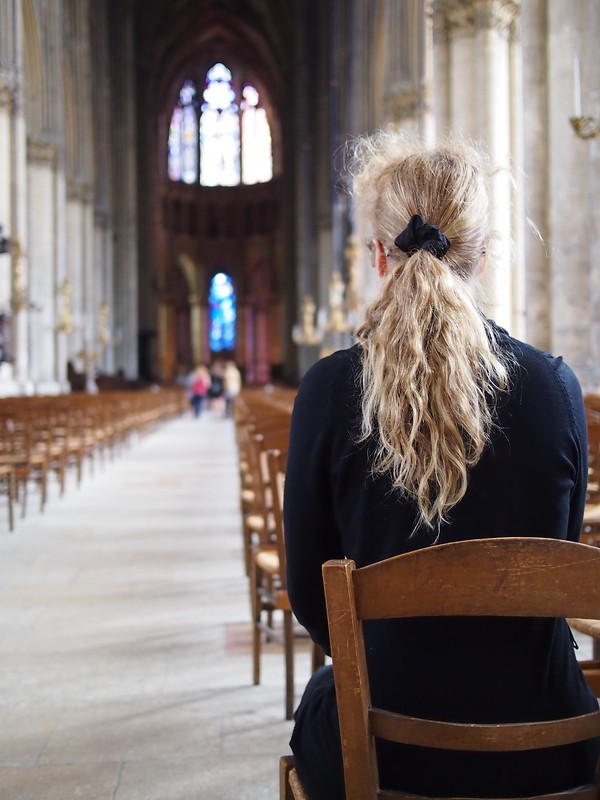WTN: cathedral
James Harbeck
cathedral

If polyhedral means ‘many-sided’, and dodecahedral means ‘twelve-sided’, then it follows that cathedral must mean ‘cat-sided’, clearly.
And if polyhedral is the adjectival form of polyhedron, it follows that cathedral must be the adjectival form of cathedron.
And, since hedron is from Greek ἕδρα ‘seat’, cathedron means ‘cat chair’. Which makes perfect sense, if you’ve ever seen the majesty with which a cat can occupy a chair.
You may have noticed, however, that ἕδρα is hedra, not hedron – the Greek root is originally feminine; for various reasons it came through in the neuter when referring to shapes. But this means that the word is not cathedron but cathedra.
Are you chary of this idea that cathedra is a cat chair? Some of us know this word in the Latin phrase ex cathedra, which refers to pronouncements that are made by the pope in his official papal role, and as such doctrinally binding (“infallible”), set down in stone as it were. There aren’t all that many of these; most things the pope says (e.g., interviews, sermons, tweets) are not ex cathedra and are open to some level of disagreement.
Cathedra is also an English word (by direct assimilation from Latin) referring to the chair of a bishop in his home church. That’s why the church is a cathedral – originally it’s cathedral church, as in the church with a cathedra.
So the top dog of dogma gets the cat chair, is that right? Well, if the bishop is a cardinal, you could say he’s the top bird (although the bird is actually named after the ecclesiast, and not the other way around; cardinals the bishops wear red robes, and so do cardinals the birds, but cardinals in the church are so named for the same reason that cardinal numbers are cardinal numbers: from Latin cardinalis, which means ‘important, pivotal’). But in any event he’s in the catbird seat.
But while there is something very appealing about the image of a majestic feline occupying an important chair in an important church, we do need to deal honestly with this cat. And perhaps you should be sitting down for this.
You see, we could catalogue an almost catastrophic number of words with cat at the start – certainly enough to make you catatonic – that all get it from the same Greek root: κατά. In some cases it trims to κατ; in others – words that have “rough breathing,” which is typically rendered as h in transliteration – it shows up as καθ. And that root κατά translates variously, because it’s a preposition, but it’s generally ‘against’ or ‘towards’ or ‘along’ or ‘according to’ or – perhaps most often, and in the present case – ‘down’. Which, since ἕδρα means ‘seat’, means that cathedra is ‘sit down’ – as a noun, mind you, not a verb.
But there are three more things to think about. One is that cats follow the principle of “If it fits, I sits” – they famously like to occupy boxes and bowls that you might not think they could even get into. And that means that a random parallelepiped of corrugated cardboard could become a cathedra for a cat – the infallible authority seated in whatever held your last shipment from Amazon.
The second is that cat, as in your furry friend, is not in fact related to κατά (I imagine you’re not surprised). Its origins are known to a certain point, traced back into Proto-Germanic, and it is thought to be cognate with, and perhaps derived from, Latin cattus ‘cat’ (seems likely, doesn’t it), but there are also similar words for the same thing in some unrelated languages, such as Nubian, Arabic, and Classical Syriac, and so it could be what’s called a Wanderwort – a “wander-word,” a word that has been spread around by travel. Which, frankly, seems altogether fitting for what it names, an animal as famous for its wandering as for its sitting.
The third is that while bishops and popes may stay in their seats (indeed, they are not known for wandering much on matters of dogma), words do wander – not just geographically, but in form too. If a word fits better in speakers’ mouths in a modified way, it will ultimately sit that way. And so syllables get trimmed and sounds get modified. And the word cathedra, over the centuries, passed through French and into English to become the modern words chaise(French) and chair (English). Which means that cathedral is, really, chairy in fancy traditional raiment.
Please send comments, replies, and suggestions for words to taste to me to ja...@harbeck.ca.
Feel free to pass this on to friends. If you've received it as a forward, feel free to join the Word Tasting Notes email list at http://groups.google.ca/group/word-tasting-notes .
Visit my blog at http://sesquiotic.wordpress.com .
